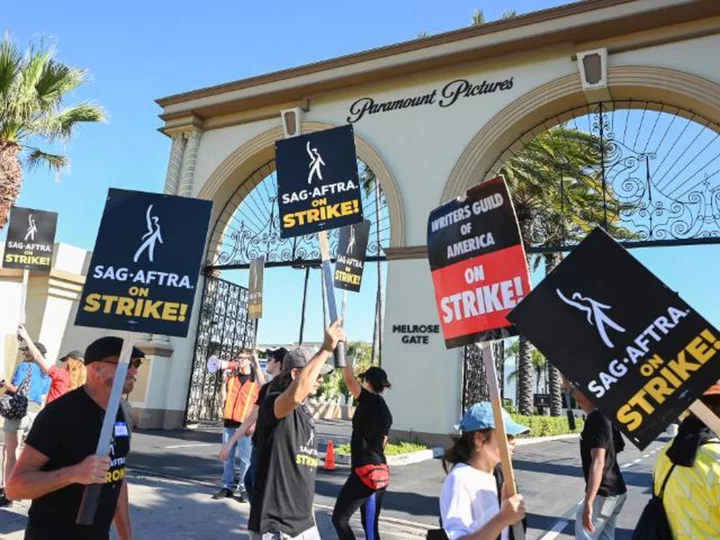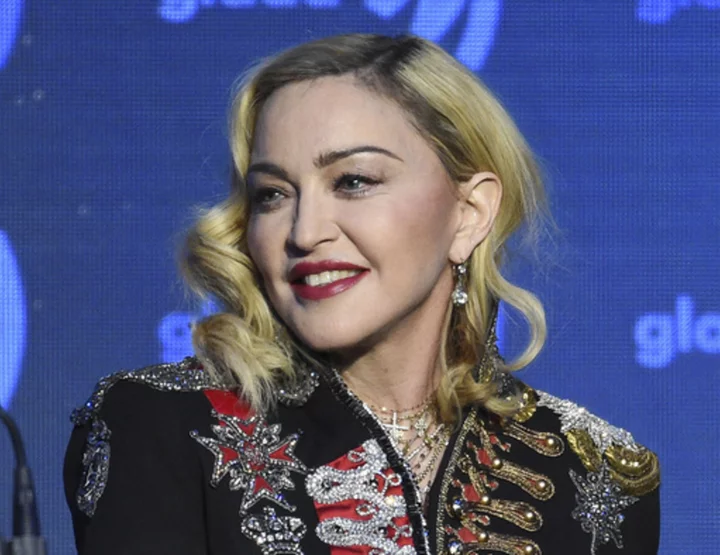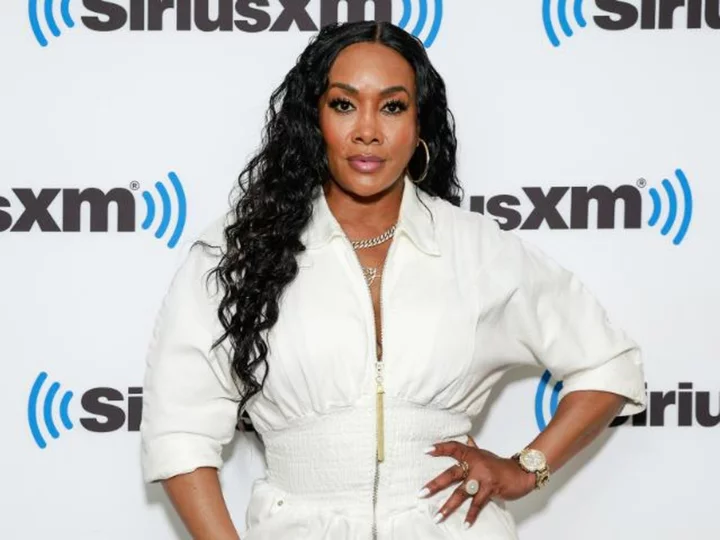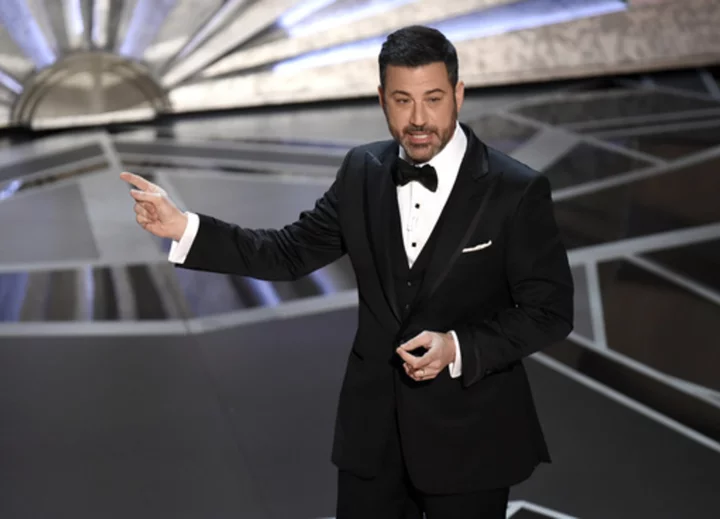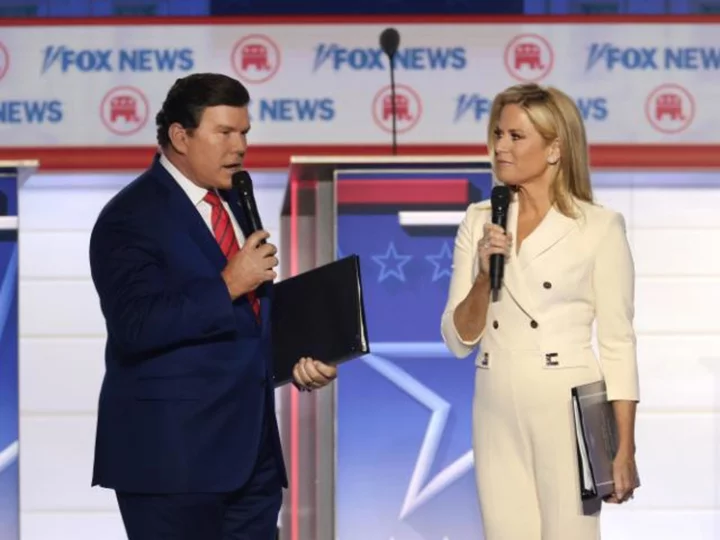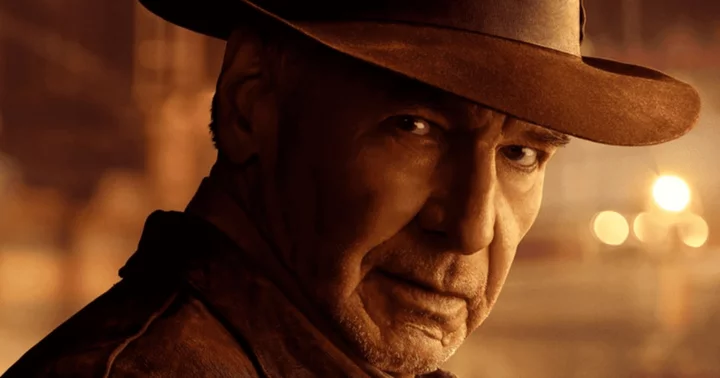For Hollywood, 2023 will be remembered as a cruel summer, a dead reckoning of a different kind. That's because bad news has piled up, highlighting a reshaping of the entertainment industry that has fueled uncertainty and triggered eruptions in labor unrest.
Twin strikes by the guilds representing writers and now actors -- the first time that's happened since Ronald Reagan was president of the Screen Actors Guild in 1960 -- reflect how the technological shift toward streaming, diluting traditional television, has unsettled business models and the workers that rely on them.
Add to that consumers who have grown increasingly accustomed to watching movies at home, which has combined with the lingering effects of the Covid pandemic to result in major disappointments at the box office.
The summer's ostentatious setbacks for studios have included "The Flash" (released by Warner Bros., like CNN, a unit of Warner Bros. Discovery), Disney's "Indiana Jones and the Dial of Destiny" and the Pixar movie "Elemental." Even Tom Cruise, who seemingly rescued the theatrical business with the blockbuster success of "Top Gun: Maverick," might not be immune, though the jury remains out on how many will accept an invitation to watch "Mission: Impossible -- Dead Reckoning, Part One" on big screens.
The disruptions can also be seen in television, where, as Variety reported, the upfront marketplace -- during which networks secure billions of dollars in advertising commitments -- has been underwhelming, adding to the ongoing struggles of linear broadcast and cable networks.
With more consumers cutting the cord on cable or satellite subscriptions for a la carte options, even ESPN, the sports giant, has implemented significant cuts to its roster of on-air talent.
As for streaming, what was once seen as the entertainment industry's savior, especially during the pandemic, has continued to be profit-challenged because of the billions invested in programming. As a result, some streaming services have been thinning their rosters of available material (so long, "peak TV"), which risks giving consumers less incentive to subscribe.
A key question has become whether streaming might subtract at least as much as it adds by "cannibalizing" existing forms of distribution. Tony Gilroy, the writer-producer behind the Emmy-nominated "Star Wars" series "Andor," told Indiewire the business side of streaming is "distorted and warped and is close to ruining this amazing industry."
"This business model has been changed," SAG chief negotiator Duncan Crabtree-Ireland said at a July 13 press conference, "but the companies just want to keep our members locked in a contract that doesn't reflect that change."
From their perspective, studios and streamers aren't wrong when they say the business is undergoing a major shift, prompting Disney CEO Bob Iger to state that the guilds' contractual demands are not "realistic" in the current climate. Yet Iger made those remarks from an annual conference in Sun Valley where wealthy media moguls assemble to discuss their business, fueling animosity from those on the picket line.
Another problem facing the studios is that many of their movies and TV shows cost too much to make for a greatly fragmented marketplace, a formula that can't be turned around overnight. Escalating budgets add to the pressure, and potential losses, for under-performing blockbusters like "Indiana Jones" and "The Flash," which need earn huge sums to break even. Executives fear new guild contracts will only add to that problematic math.
The asterisk -- and it's a big one -- is that the guilds know precious little about the economic specifics of the streaming business, which aren't widely shared. Actors and writers who once counted on residual payments could see TV ratings and box-office tallies. Today, the world of streaming is far less transparent, one reason some have taken to calling this the "Netflix strike."
All these factors, and the uncertainty that goes with them, help explain why both sides appear so dug in, recognizing the magnitude of the issues at stake as justification to endure short and potentially longer-term sacrifices -- seeing this as "an inflection point" for the industry, as actor-director-producer George Clooney stated.
Because projects are produced far in advance, consumers won't see the broader consequences of these strikes for a while. But their evolving habits -- and the appetite for new technologies, like Apple's pricey virtual-reality headset -- are other unknowns in this equation, including people's willingness to pay more for entertainment, wherever and however they watch it.
Consider that as another variable as to whether this reckoning will begin turning the page on Hollywood's bummer of a summer, or merely point toward chilly winters ahead.

